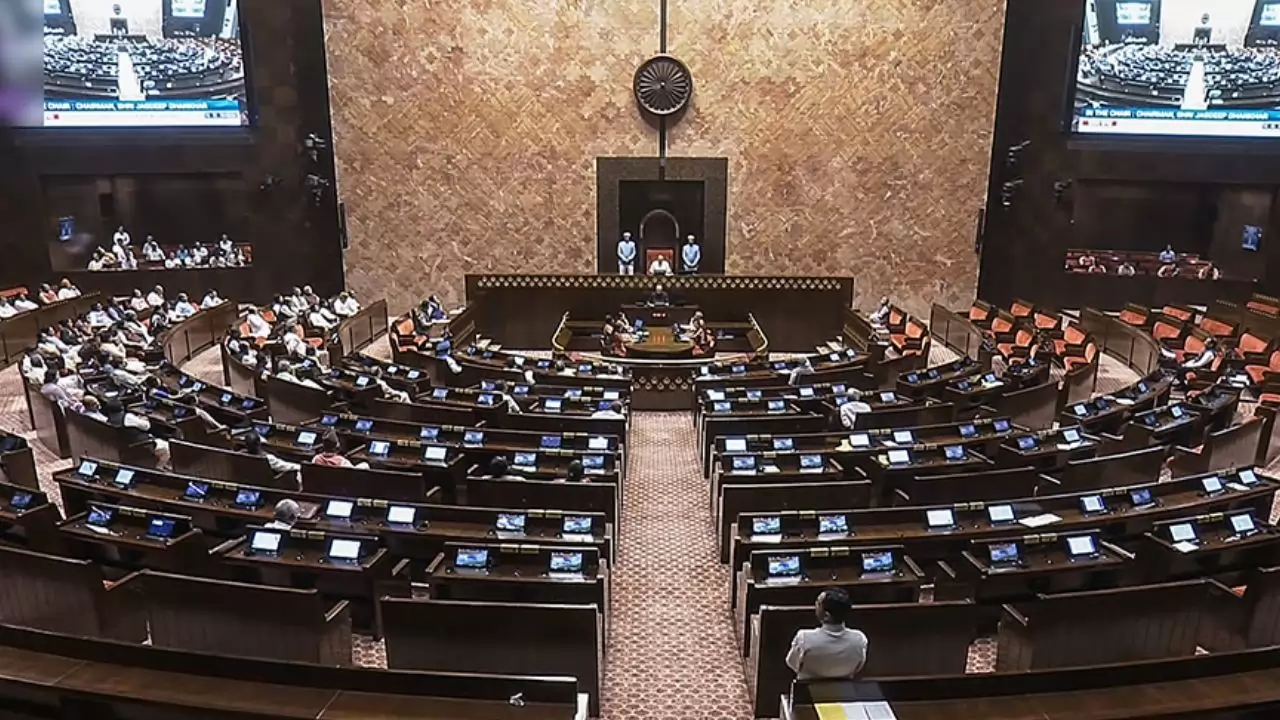
The unopposed elections have increased the BJP's strength in the Rajya Sabha to 96. (ANI)
New Delhi: The National Democratic Alliance (NDA) has achieved a significant milestone in the Rajya Sabha, the upper house of India's Parliament, with 12 members elected unopposed. This development boosts the NDA's numbers and solidifies its majority. The newly elected members include nine from the Bharatiya Janata Party (BJP) and three from NDA allies, enhancing the ruling coalition's control over the legislative process.
The unopposed elections have increased the BJP's strength in the Rajya Sabha to 96, pushing the NDA's total to 112 members. The BJP's unopposed candidates are Mission Ranjan Dass and Rameshwar Teli from Assam, Manan Kumar Mishra from Bihar, Kiran Chadhary from Haryana, George Kurien from Madhya Pradesh, Dhirya Sheel Patil from Maharashtra, Mamata Mohanta from Odisha, Ravneet Singh Bittu from Rajasthan, and Rajeev Bhattacharjee from Tripura.
In addition to the BJP members, two allies also secured seats: Nitin Patil from the Ajit Pawar faction of the Nationalist Congress Party (NCP) and Upendra Kushwaha from the Rashtriya Lok Manch (RLM). The NDA now benefits from the support of six nominated members and one independent, further strengthening its position.
The Congress Party also made a gain with Abhishek Manu Singhvi elected unopposed from Telangana. This brings the Opposition's numbers in the Rajya Sabha to 85.
The Rajya Sabha has 245 seats, though eight are currently vacant—four from Jammu and Kashmir and four nominated positions. With 237 members currently in the house, the majority mark stands at 119. The NDA's current strength, bolstered by the recent elections, positions it within reach of this majority threshold.
Achieving a majority in the Rajya Sabha, a goal the NDA has pursued for a decade, is expected to facilitate the passage of contentious bills. Previously, substantial Opposition numbers frequently impeded government legislation. With major Opposition parties losing influence and key allies no longer dependable, the NDA's path to passing legislation is now significantly clearer.





Copyright © 2026 Top Indian News
